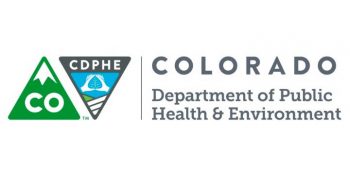DENVER: Colorado public health agencies have provided nearly 6,000 hepatitis A vaccinations to at-risk populations in an ongoing effort to mitigate an outbreak that began in October. There have been 52 cases in the outbreak so far, all among people experiencing homelessness and/or substance use issues, people who are incarcerated, and contacts of people with those risk factors.
“Hep A is completely preventable, and outbreaks can be stopped if people receive the vaccine,” said Nicole Comstock, deputy director of the Communicable Disease Branch at the Colorado Department of Public Health and Environment. “Colorado’s local public health agencies have done a remarkable job providing the vaccine to those who need it most, and in doing so preventing cases and associated health care costs.”
Vaccination efforts are taking place statewide, but are concentrated in counties with outbreak cases (primarily El Paso and Fremont counties), adjacent counties, and counties along the Front Range. There have been an estimated 80 public health vaccination clinics since October, in addition to increased educational messaging through printed materials and targeted digital advertising. Local agencies are collaborating with law enforcement, homeless shelters, substance-abuse treatment centers and other community partners in this effort.
Hepatitis A is a liver infection caused by a virus that can be prevented with a safe, effective vaccine. It is highly contagious and can cause liver disease lasting a few weeks to a serious illness lasting months. Rarely, it causes death. Hepatitis A usually spreads when a person unknowingly ingests the virus from objects, food, or drinks that are contaminated by small, undetected amounts of stool from an infected person. It also spreads through close personal contact with an infected person such as through sex, caring for someone who is ill, or sharing drugs or drug equipment with someone who may be ill.
“People affected by this outbreak may have less access to health care and greater health risks,” Comstock said. “Poorer nutrition, living in crowded places such as shelters and jails, limited access to facilities to maintain personal hygiene, and limited access to preventive health care unfortunately make disease spread more likely. Public health’s mission is to strive for health equity and to improve health and prevent disease among all people, regardless of life circumstances.”
To prevent additional illnesses and outbreaks, public health is focused on getting vaccine for:
- People who are transient or experiencing homelessness.
- People with substance use issues, such as use of injection and non-injection drugs.
- People who are in county or city jails.
- People who live with, have close contact with, or have sex with someone who has hepatitis A.
Hepatitis A vaccine is available at doctor’s offices and many retail pharmacies. People can check vaccinefinder.org to find a retail location. People who need help paying for vaccinations should contact their local public health agency.
To learn more about symptoms, prevention and vaccination recommendations, visit the department’s hepatitis A web page, which also includes a link to outbreak data. People who have general questions about hepatitis A can call CO-Help at 303-389-1687 or 1-877-462-2911, or by email at , for answers in English and Spanish.
SPREAD THE NEWS
COMMENT, Like, Follow & SHARE @I70Scout
CURRENT EDITION
WEATHER & TRAFFIC PUZZLES RECENT NEWS ADVERTISE WITH US

Leave a Reply